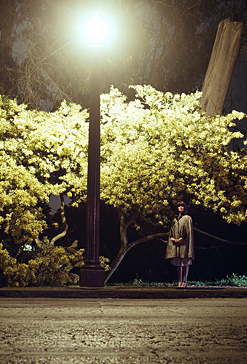H&M & Organic Cotton
It depends on what evil I’m trying to remedy. In this case, I chose to buy the organic cotton hence making a stand against the use of pesticides and placing a vote for organic cotton on H&M’s ledger. But these items have a fairly large carbon footprint after being shipped around the world and trucked across the country (or at least from the Port of Oakland). Then there is the issue of H&M’s use of sweatshops in Southeast Asia, Africa, and Eastern Europe that accompany rumors of child labor (article). Even though the cloths are organic cotton, there’s no mention of the use of vegetable dyes that would ease the chemical burden on the water system by replacing synthetic dyes.
In the end, I’m pleased that H&M is making an effort to clean up the fashion industry by assuming a leadership role in creating a viable market for organic cotton farmers. Today, my-dollar-is-my-vote goes to organic cotton and H&M. Tomorrow, my vote may be cast for a carbon neutral alternative, but that’s just what is so great about these times, we don’t have to be ignorant anymore when we go shopping, we have some choices!!
The other cloths in the shoot included a bamboo dress by Lilja and the rest are thrifted items.










